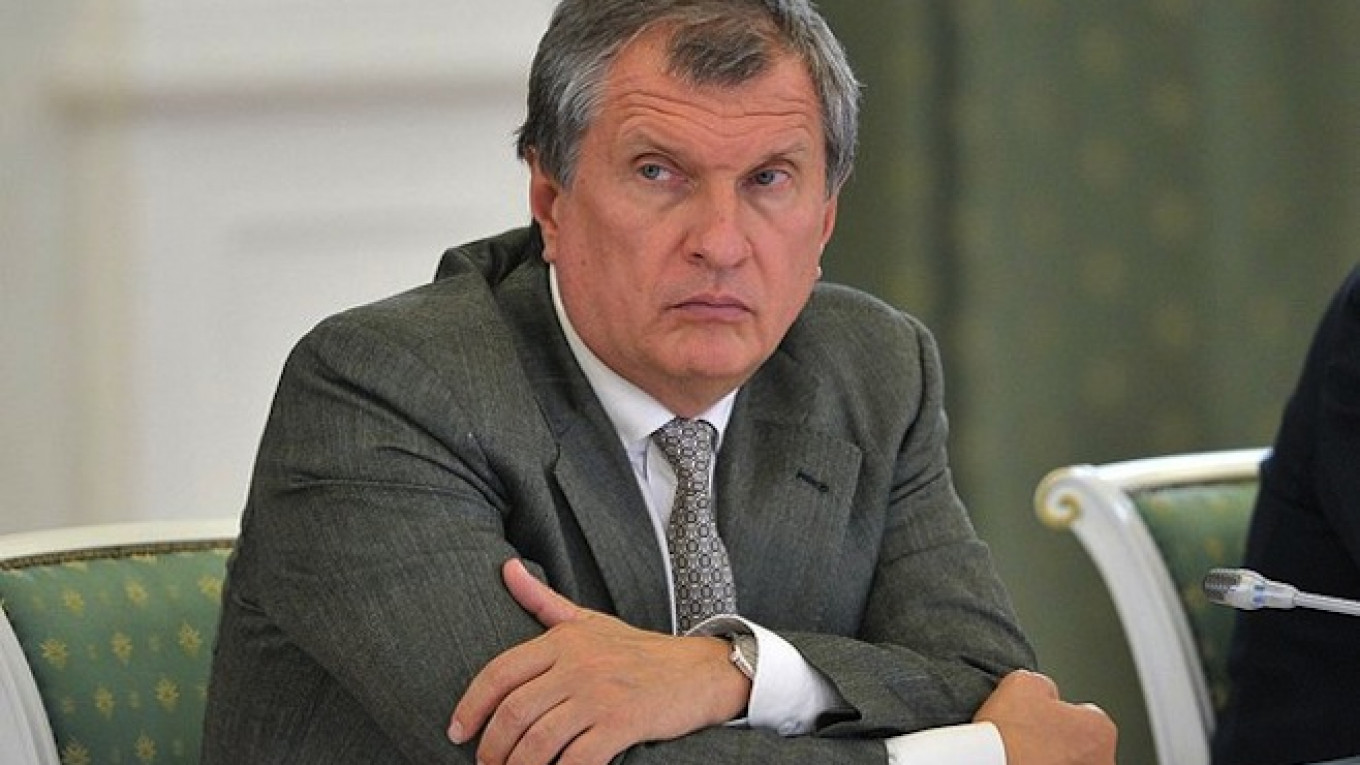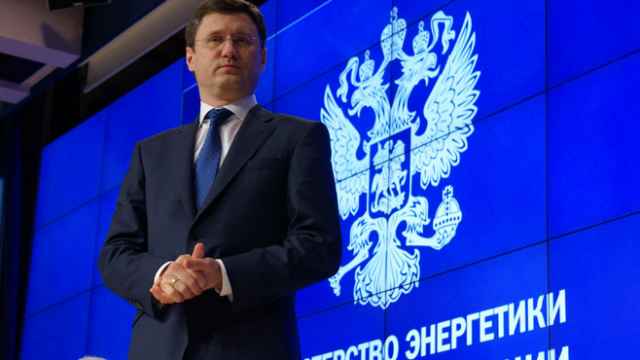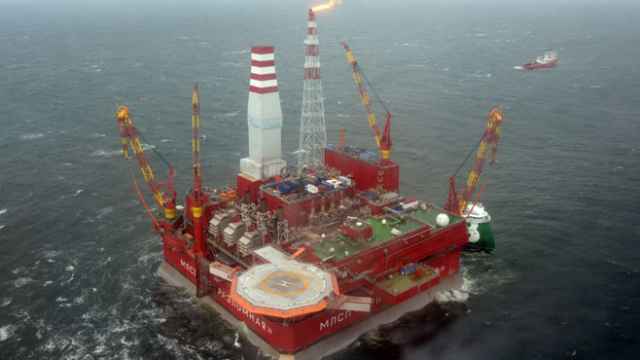MOSCOW/CARACAS — Top Russian oil producer Rosneft's Chief Executive Igor Sechin will fly to Vienna on Nov. 25, just two days before the Organization of the Petroleum Exporting Countries meets in the city to debate the plunge in oil prices.
The surprise announcement from the state-backed firm raised speculation that Sechin, a close ally of President Vladimir Putin, will discuss coordinating with OPEC to try stem the near 30 percent drop in oil prices since June.
Venezuela said Monday that its Foreign Minister Rafael Ramirez and Russian Energy Minister Alexander Novak had met in Moscow and discussed "the need to coordinate actions in defense" of prices in the oil market.
But Russia, the largest oil exporter outside OPEC, has so far made no statement about joining any possible production cut, even as the price drop threatens to tip its sanction-hit economy into recession. Previous overtures between the producer group and Russia have failed to produce results.
Oil's drop below $80 a barrel has raised the focus on the OPEC meeting, with traders billing it as the most pivotal since the 2008 financial crisis.
Rosneft said the Vienna oil conference was initially scheduled to take place in Venezuela on Nov. 21 but was moved "due to the initiative of the Venezuela side."
Still, traders are not counting on any quick action, within OPEC or by other producers. Brent crude fell 23 cents a barrel to $79.18 by 1934 GMT on Monday, near four year lows hit last week.
OPEC veteran Ramirez, who was energy minister of the cash-strapped Latin American country until September, has been on a global tour of OPEC and non-OPEC nations to strengthen calls for an output cut.
Sechin, as Russia's deputy prime minister, attended OPEC meetings in 2008 and 2009 as prices collapsed during the financial crisis, but Russia ultimately declined to take action alongside the producer group to shore up the market.
Analysts say Russia is still pursuing a policy of closer ties with other oil producers, as well as potentially needling Western powers, with whom relationships are at a post-Cold War low over the situation in Ukraine.
Several Russian oil executives and government officials have indicated they believe the drop in prices has been coordinated by Washington and Saudi Arabia, the largest OPEC member.
Saudi Arabian oil minister Ali al-Naimi last week broke a months' long silence to say there was no "price war" within the group, but gave little indication he supported an output cut, saying prices are set by markets.
A Message from The Moscow Times:
Dear readers,
We are facing unprecedented challenges. Russia's Prosecutor General's Office has designated The Moscow Times as an "undesirable" organization, criminalizing our work and putting our staff at risk of prosecution. This follows our earlier unjust labeling as a "foreign agent."
These actions are direct attempts to silence independent journalism in Russia. The authorities claim our work "discredits the decisions of the Russian leadership." We see things differently: we strive to provide accurate, unbiased reporting on Russia.
We, the journalists of The Moscow Times, refuse to be silenced. But to continue our work, we need your help.
Your support, no matter how small, makes a world of difference. If you can, please support us monthly starting from just $2. It's quick to set up, and every contribution makes a significant impact.
By supporting The Moscow Times, you're defending open, independent journalism in the face of repression. Thank you for standing with us.
Remind me later.






